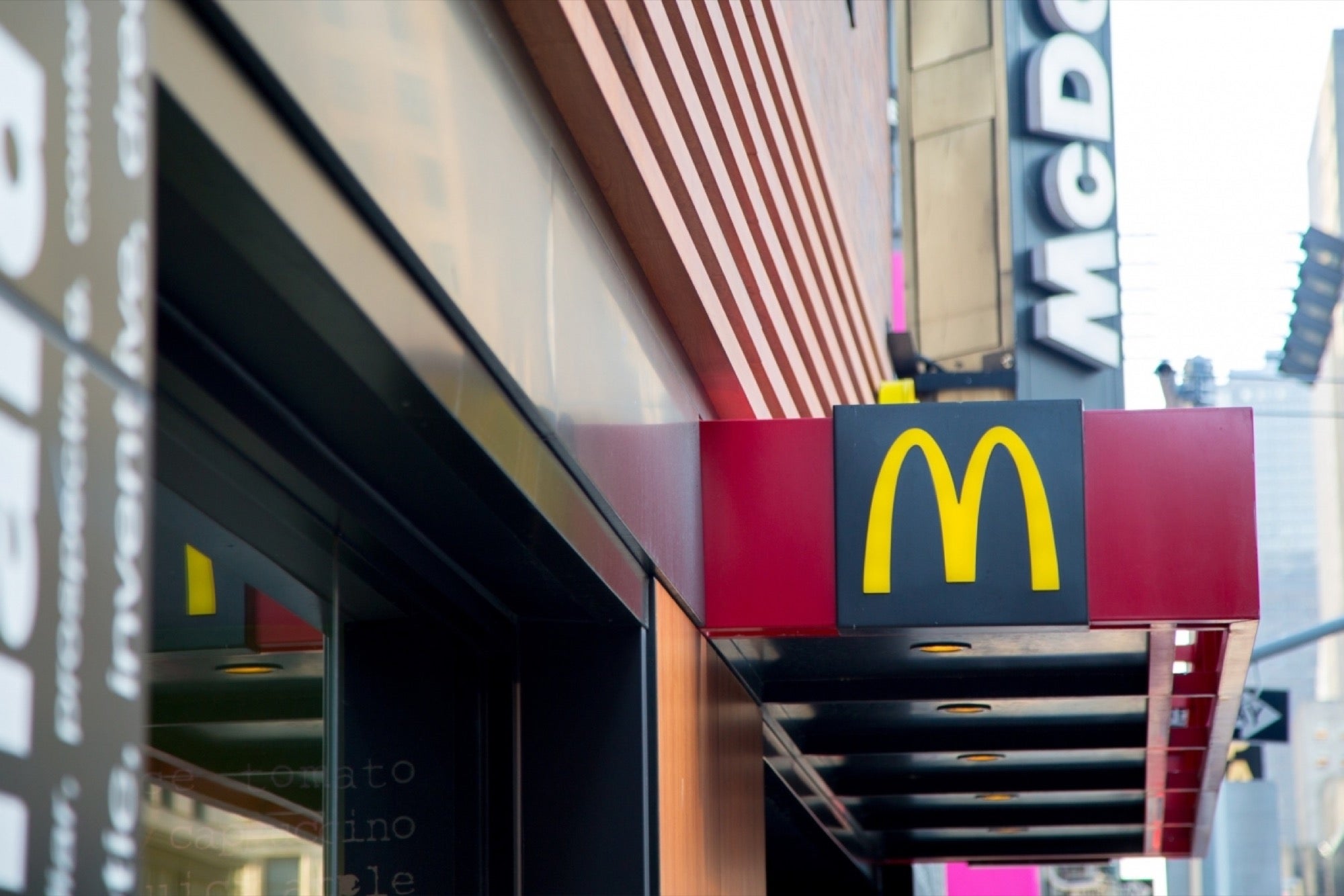5 Uncomfortable Questions Asked at McDonald's Company Shareholders' Meeting Like to complain about McDonald's? You'd fit right in at the company's shareholders' meeting.
By Kate Taylor
Opinions expressed by Entrepreneur contributors are their own.

McDonald's has recently come under a lot of fire as both its sales and reputation are in a slump. And at its annual shareholders' meeting on Wednesday, the company continued to feel the heat.
The meeting, just like other companies' shareholders' meetings, is open to anyone owning a stake in the company, meaning meetings can swiftly go from an orderly discussion of business proposals to an airing of grievances against the company. And boy, did shareholders have a lot to say.
Here are five of the most passive-aggressive, barbed and just plain weird questions shareholders demanded McDonald's CEO Steve Easterbrook answer at this year's meeting.
Related: Freshii's CEO Says McDonald's Franchisees Want to Open Healthy Shops Inside Fast-Food Restaurants
1. Why won't McDonald's stop marketing to kids with Ronald McDonald?
McDonald's marketing aimed at children was the most popular criticism of the meeting. Speakers attacked McDonald's for targeting kids through partnerships with schools and teachers, and the continued use of Ronald McDonald's to attract children to the chain.
"Progressive corporations don't use schools as ads," health-blogger Casey Hinds said in a roundabout question full of barbs aimed at McDonald's. "Moms and millennials are leaving the brand behind."
The company responded saying Ronald McDonald's presence at schools is an example of local franchises helping the community, but critics argue the company is trying to pressure kids to buy junk food at an early age.
Despite angry questions at the meeting, McDonald's will not stop indirectly marketing to kids. Easterbrook emphasized that the chain exceeds minimum regulations of nutrition and that is has added healthy options in Happy Meals. He also said that Ronald is here to stay.
"Since he got his redesign and outfit, he's feeling more confident and even trendier," said Easterbrook.
2. Will McDonald's genuinely support workers?
As up to 2,000 fast-food protestors gathered outside McDonald's headquarters, calling for a $15 minimum wage, inside discussion of workers' rights also grew heated.
"The wages and lack of benefits are more of a nightmare," said Robert Clack of the Restaurant Opportunities Centers United. Clack and others accused McDonald's of paying poverty level wages and teaming up with the National Restaurant Association to block national minimum wage hikes, while offering lip service toward workers' rights.
McDonald's executives, unsurprisingly, disagreed.
"I utterly refute a number of the comments you made before you got to the question," Easterbrook said in response to Julia Gabbert of Corporate Accountability International's statement that the company's marketing to kids and low wages were hurting its bottom line.
Easterbrook pointed to McDonald's decision in April to raise minimum wage at corporate locations (the only locations the chain had the ability to do so, he noted), allow employees to accrue paid time off and the expansion of its education program. He also emphasized these efforts were only the "first step" the company is taking as a progressive employer.
McDonald's executives got some unexpected backup from shareholders in the audience who added their two cents in support of the company. One man who said he'd been a shareholder for 25 years noted that celebrities such as Shania Twain and Jeff Bezos once worked at McDonald's before moving on to loftier careers.
"I think if they were still making $15 per hour, they'd still be working at McDonald's!" he said, arguing the movement to raise minimum wage is misguided. In other words, if McDonald's paid employees more, no one would have ever had the pleasure of preforming "Man! I Feel Like a Woman!" at karaoke.
Related: The SEIU Petitions the FTC to Investigate the 'Abusive and Predatory' Franchise Industry
3. Can McDonald's do more to promote GMOs?
One shareholder introduced a proposal to promote GMOs. That's right: One month after Chipotle cut genetically modified ingredients, a shareholder for McDonald's is calling for the company to come out in support of GMOs. The shareholder stated that research had concluded GMOs are safe and that for the company not to put full support behind genetically modified food endangered the company and the developing world.
Only 4 percent of shareholders voted in favor of the proposal.
4. Why don't restaurants have what I want when I show up late at night?
One shareholder had a complaint familiar to many late night McDonald's customers, asking why the items he wanted weren't always on the menu when he showed up late at night.
"If you're going to be open 24/7, you should be open 24/7," he said, complaining that often restaurants failed to have grilled chicken options or breakfast offerings.
Easterbrook responded saying that one of McDonald's challenges has been an increasingly broad menu, making it difficult to sell all items at all times. As a solution, the company is trimming down the menu as well as testing all-day breakfast.
5. Why did McDonald's sell Chipotle?
One McDonald's shareholder had a different restaurant chain on her mind: Chipotle.
"I'd like to ask why Chipotle was sold," she said, referring to the company's decision to divest from the burrito chain in 2006.
While the question was met with laughter, Easterbrook responded in earnest, saying that at the time Chipotle and other concepts, such as Boston Market, had taken attention away from the core brand. Company executives wanted everyone to put 100 percent of their efforts into the McDonald's brand, so they sold the company's shares. Today, Easterbrook wishes the best of luck to all of McDonald's former investments -- including Chipotle.
Related: The 8 Craziest Ways McDonald's Has Tried to Boost Sales









